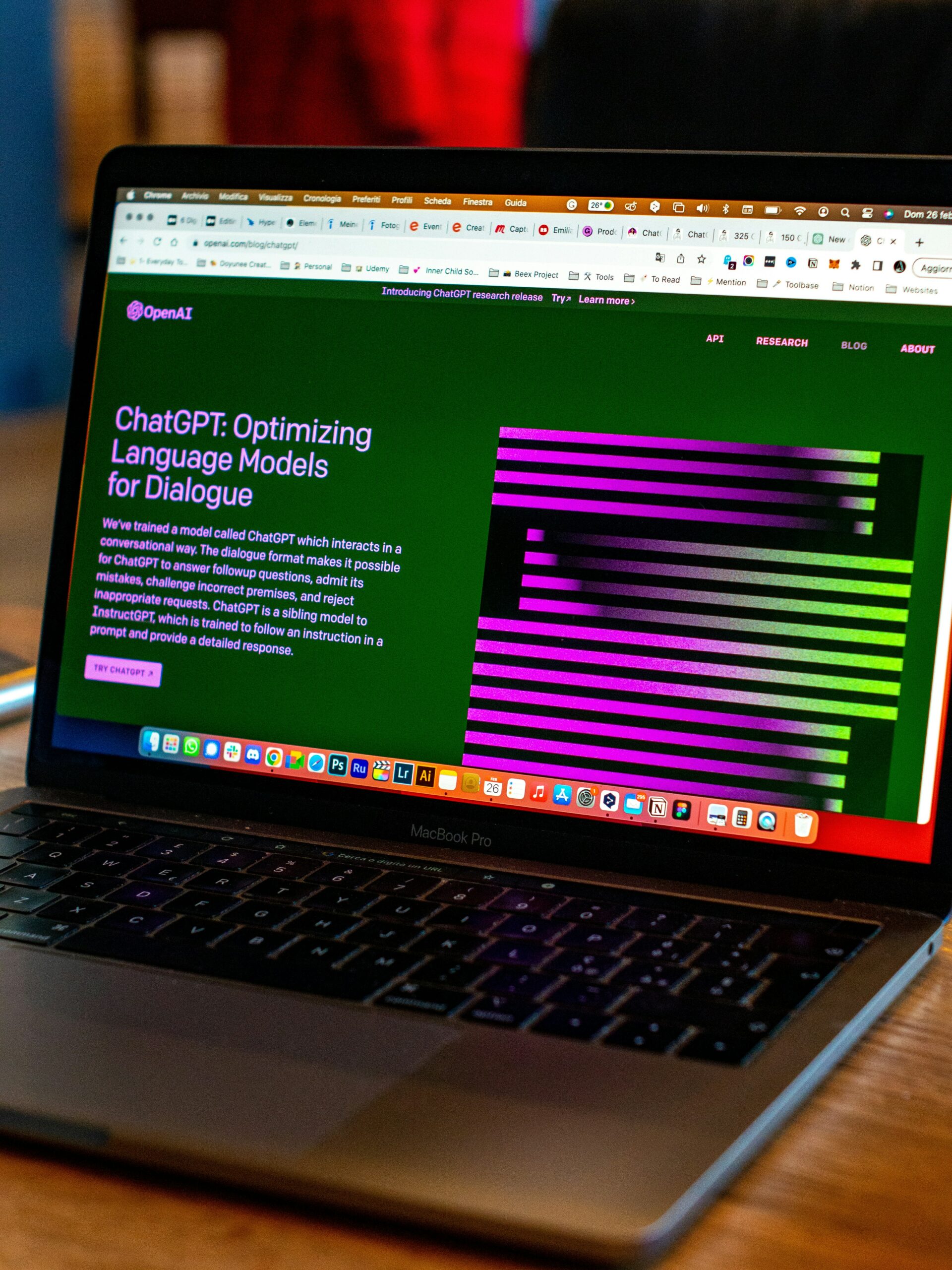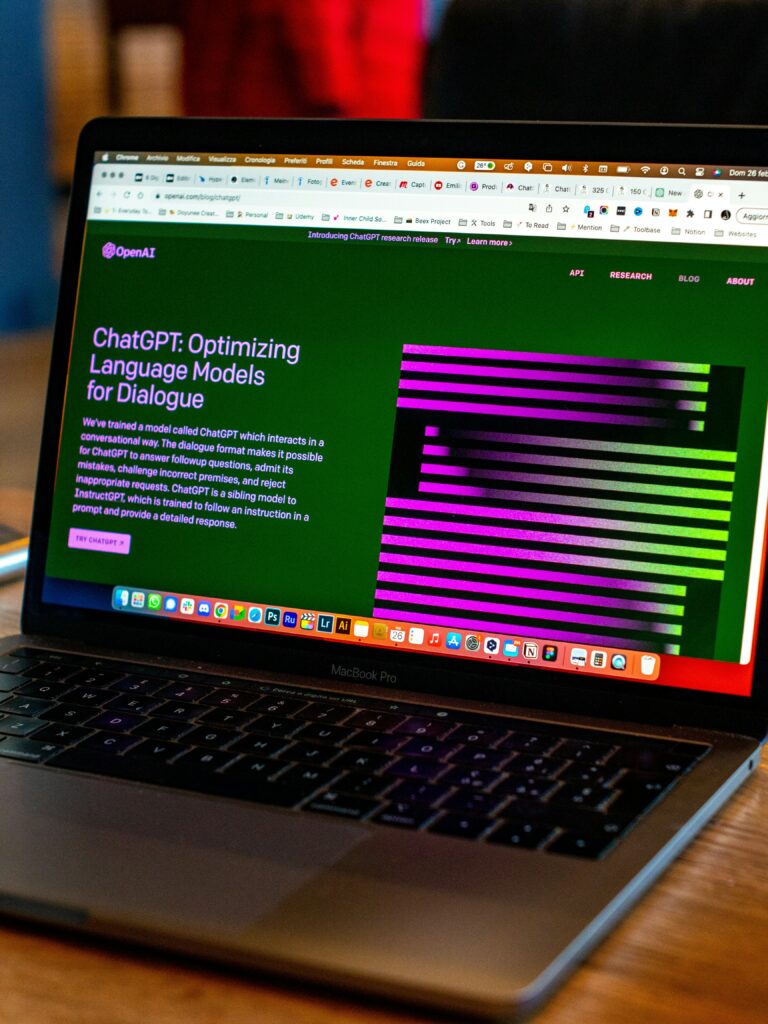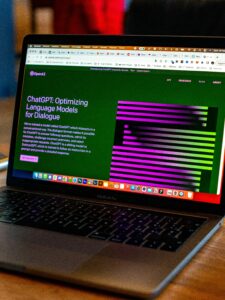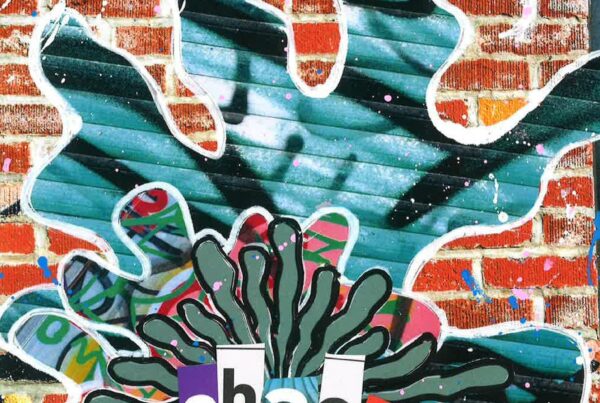
In recent years, ChatGPT and other forms of AI have taken the world by surprise. However, the rapid rise of AI has brought unprecedented dilemmas — tackling them will be one of the greatest educational challenges of the 21st century.
In recent years, ChatGPT and other forms of AI have taken the world by surprise. However, the rapid rise of AI has brought unprecedented dilemmas — tackling them will be one of the greatest educational challenges of the 21st century.

Photo by Emiliano Vittoriosi

Photo by Emiliano Vittoriosi
If you were to tell people 20 years ago that we would have software that can debug codes, write movie scripts, solve math problems, compose music and much more in 2024, they would think you are crazy. Today, it has become reality. AI has reshaped society, revolutionizing the way people communicate, work, and access information. In education especially, they’ve become a valuable tool for students. ChatGPT, the most popular AI chatbot, is reported to be used by 86% of students (Rong & Chun, 2024). This is unsurprising given its capabilities. Imagine a robot friend who’s always available to answer any question you have, 24/7 – that is essentially what ChatGPT is. Among the most common uses of AI are searching for information, checking grammar, summarising and paraphrasing documents, and creating a first draft (Rong & Chun, 2024). Naturally, the question of whether students should possess this ‘power’ has been a hot topic of debate among educators. As its influence on education grows, it has become more important than ever to assess the risks and benefits of AI in education.
“Imagine a robot friend who’s always available to answer any question you have, 24/7 – that is essentially what ChatGPT is.”
There are several risks that must be considered. A primary concern is that of plagiarism in essays and other written assignments. As deadlines approach, some students might find themselves considering whether to spend hours writing an assignment from scratch or to use ChatGPT to complete it quickly. Unfortunately, some succumb to the temptation. For instance, 10% of papers were detected by Turnitin’s AI detection tool to contain AI-generated text, while 3% of papers were mostly written by AI in 2023 (Turnitin, 2024). Consequently, concerns over AI-assisted cheating are escalating, as it can hinder the development of skills that students will need in their studies and future jobs. For example, relying on AI may lead students to skip over important learning steps, like developing arguments, researching a topic, and coming up with their own ideas. This could ultimately affect their ability to think critically and perform well in real-world situations. For now, teachers are the ones most affected, as it has forced them to rethink their assessments. Ironically, many now rely on AI-based plagiarism detection tools to combat AI-generated cheating.
As AI-assisted cheating becomes more prevalent, universities worldwide have had to adapt their guidelines for AI use. The University of Amsterdam (UvA), for example, has established specific rules. On one hand, UvA states that “students and lecturers are not (yet) allowed to make active use of AI tools for teaching and assessment (AI Tools and Your Studies, 2023). The mention of ‘yet’ hints that the university might be considering allowing AI someday, which is unsurprising given the university’s significant investment in research and practical applications of AI, a total of a billion euros (AI at the UvA, 2024). It has also partnered up with VU Amsterdam to establish an AI task force dedicated to exploring how AI can be used as a constructive teaching tool (VU-UvA Task Force on AI in Education, 2024). For now, however, the use of AI in teaching and assessment remains strictly prohibited. On the other hand, the university also acknowledges that “AI tools can help you to study more effectively. For example, ChatGPT can be used to brainstorm, to check knowledge when studying for an examination or to translate a text.” (AI Tools and Your Studies, 2023) In short, while the use of AI is not allowed for graded assignments, it is permitted for study purposes. But there are risks involved with this, UvA warns: potential for inaccurate information, bias, and stereotypes, and concerns about data privacy and security. These risks, along with concerns about AI-assisted cheating, have contributed to the reluctance of many universities to allow this technology in their teaching practices.
“Think back to a moment when a teacher really made a difference in your life. Could a chatbot have done the same? AI is useful, but it doesn’t replace the warmth and wisdom a teacher offers.”
Looking ahead, the future of AI in education is filled with possibilities. As technology advances, we can expect more sophisticated chatbots than those we have today; some might even act as personal learning assistants. These developments have led teachers to be concerned whether they will be replaced by these technologies (Hamilton, 2024). However, chatbots cannot fully replace the deep understanding and personal experiences that human educators provide. Think back to a moment when a teacher really made a difference in your life. Could a chatbot have done the same? AI is useful, but it doesn’t replace the warmth and wisdom a teacher offers. Instead of a full replacement, the near future is likely to see a blended learning environment where technology complements human instruction. In fact, a majority of teachers already use AI in their classroom, incorporating AI-powered educational games, adaptive learning platforms, automated grading and feedback systems, and chatbots for student support in their teaching (Hamilton, 2024). This partnership has the potential to create a more engaging and effective educational experience for both students and educators.
There is no doubt that AI will play a big role in education in the upcoming years. Not only has it already made a tremendous impact in education, but its presence echoes nearly all aspects of society, such as business, law, and healthcare. As AI continues to integrate into various aspects of life, it’s clear that it will become an unavoidable part of our daily routines, and rather than resisting this change, we must focus on adapting and finding ways to reconcile with it. The future with AI seems promising; however, we must approach it responsibly and ethically.
And, yes, this article was written with the help of ChatGPT.
References
- AI at the UvA. (2024, June 3). UvA. https://www.uva.nl/en/about-the-uva/about-the-university/ai/ai.html
- AI tools and your studies. (2023, May 16). UvA. https://student.uva.nl/en/topics/ai-tools-and-your-studies
- Hamilton, I. (2024, June 6). Artificial intelligence in Education: Teachers’ opinions on AI in the classroom. Forbes Advisor. https://www.forbes.com/advisor/education/it-and-tech/artificial-intelligence-in-school/
- Rong, H., & Chun, C. (2024). Digital Education Council global AI student survey 2024. Digital Education Council. Retrieved August 15, 2024, from https://www.digitaleducationcouncil.com/post/digital-education-council-global-ai-student-survey-2024
- Turnitin marks one year anniversary of its AI writing detector with millions of papers reviewed globally. (2024, April 9). Turnitin. https://www.turnitin.com/press/press-detail_17793
- VU-UvA task force on AI in education. (2024, May 29). UvA. https://www.uva.nl/en/about-the-uva/about-the-university/ai/ai-in-education/vu-uva-task-force-on-ai-in-education/vu-uva-task-force-on-ai-in-education.html
If you were to tell people 20 years ago that we would have software that can debug codes, write movie scripts, solve math problems, compose music and much more in 2024, they would think you are crazy. Today, it has become reality. AI has reshaped society, revolutionizing the way people communicate, work, and access information. In education especially, they’ve become a valuable tool for students. ChatGPT, the most popular AI chatbot, is reported to be used by 86% of students (Rong & Chun, 2024). This is unsurprising given its capabilities. Imagine a robot friend who’s always available to answer any question you have, 24/7 – that is essentially what ChatGPT is. Among the most common uses of AI are searching for information, checking grammar, summarising and paraphrasing documents, and creating a first draft (Rong & Chun, 2024). Naturally, the question of whether students should possess this ‘power’ has been a hot topic of debate among educators. As its influence on education grows, it has become more important than ever to assess the risks and benefits of AI in education.
“Imagine a robot friend who’s always available to answer any question you have, 24/7 – that is essentially what ChatGPT is.”
There are several risks that must be considered. A primary concern is that of plagiarism in essays and other written assignments. As deadlines approach, some students might find themselves considering whether to spend hours writing an assignment from scratch or to use ChatGPT to complete it quickly. Unfortunately, some succumb to the temptation. For instance, 10% of papers were detected by Turnitin’s AI detection tool to contain AI-generated text, while 3% of papers were mostly written by AI in 2023 (Turnitin, 2024). Consequently, concerns over AI-assisted cheating are escalating, as it can hinder the development of skills that students will need in their studies and future jobs. For example, relying on AI may lead students to skip over important learning steps, like developing arguments, researching a topic, and coming up with their own ideas. This could ultimately affect their ability to think critically and perform well in real-world situations. For now, teachers are the ones most affected, as it has forced them to rethink their assessments. Ironically, many now rely on AI-based plagiarism detection tools to combat AI-generated cheating.
As AI-assisted cheating becomes more prevalent, universities worldwide have had to adapt their guidelines for AI use. The University of Amsterdam (UvA), for example, has established specific rules. On one hand, UvA states that “students and lecturers are not (yet) allowed to make active use of AI tools for teaching and assessment (AI Tools and Your Studies, 2023). The mention of ‘yet’ hints that the university might be considering allowing AI someday, which is unsurprising given the university’s significant investment in research and practical applications of AI, a total of a billion euros (AI at the UvA, 2024). It has also partnered up with VU Amsterdam to establish an AI task force dedicated to exploring how AI can be used as a constructive teaching tool (VU-UvA Task Force on AI in Education, 2024). For now, however, the use of AI in teaching and assessment remains strictly prohibited. On the other hand, the university also acknowledges that “AI tools can help you to study more effectively. For example, ChatGPT can be used to brainstorm, to check knowledge when studying for an examination or to translate a text.” (AI Tools and Your Studies, 2023) In short, while the use of AI is not allowed for graded assignments, it is permitted for study purposes. But there are risks involved with this, UvA warns: potential for inaccurate information, bias, and stereotypes, and concerns about data privacy and security. These risks, along with concerns about AI-assisted cheating, have contributed to the reluctance of many universities to allow this technology in their teaching practices.
“Think back to a moment when a teacher really made a difference in your life. Could a chatbot have done the same? AI is useful, but it doesn’t replace the warmth and wisdom a teacher offers.”
Looking ahead, the future of AI in education is filled with possibilities. As technology advances, we can expect more sophisticated chatbots than those we have today; some might even act as personal learning assistants. These developments have led teachers to be concerned whether they will be replaced by these technologies (Hamilton, 2024). However, chatbots cannot fully replace the deep understanding and personal experiences that human educators provide. Think back to a moment when a teacher really made a difference in your life. Could a chatbot have done the same? AI is useful, but it doesn’t replace the warmth and wisdom a teacher offers. Instead of a full replacement, the near future is likely to see a blended learning environment where technology complements human instruction. In fact, a majority of teachers already use AI in their classroom, incorporating AI-powered educational games, adaptive learning platforms, automated grading and feedback systems, and chatbots for student support in their teaching (Hamilton, 2024). This partnership has the potential to create a more engaging and effective educational experience for both students and educators.
There is no doubt that AI will play a big role in education in the upcoming years. Not only has it already made a tremendous impact in education, but its presence echoes nearly all aspects of society, such as business, law, and healthcare. As AI continues to integrate into various aspects of life, it’s clear that it will become an unavoidable part of our daily routines, and rather than resisting this change, we must focus on adapting and finding ways to reconcile with it. The future with AI seems promising; however, we must approach it responsibly and ethically.
And, yes, this article was written with the help of ChatGPT.
References
- AI at the UvA. (2024, June 3). UvA. https://www.uva.nl/en/about-the-uva/about-the-university/ai/ai.html
- AI tools and your studies. (2023, May 16). UvA. https://student.uva.nl/en/topics/ai-tools-and-your-studies
- Hamilton, I. (2024, June 6). Artificial intelligence in Education: Teachers’ opinions on AI in the classroom. Forbes Advisor. https://www.forbes.com/advisor/education/it-and-tech/artificial-intelligence-in-school/
- Rong, H., & Chun, C. (2024). Digital Education Council global AI student survey 2024. Digital Education Council. Retrieved August 15, 2024, from https://www.digitaleducationcouncil.com/post/digital-education-council-global-ai-student-survey-2024
- Turnitin marks one year anniversary of its AI writing detector with millions of papers reviewed globally. (2024, April 9). Turnitin. https://www.turnitin.com/press/press-detail_17793
- VU-UvA task force on AI in education. (2024, May 29). UvA. https://www.uva.nl/en/about-the-uva/about-the-university/ai/ai-in-education/vu-uva-task-force-on-ai-in-education/vu-uva-task-force-on-ai-in-education.html



